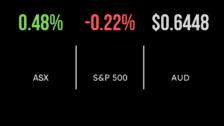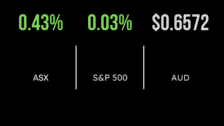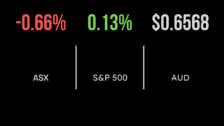CSL continues to weigh on the Australian stock market
CSL continues to weigh on the Australian stock market
The S&P/ASX 200 saw a minimal increase of just 2.6 basis points, closing at $7091. Out of the 11 industry sectors, six managed to finish in positive territory. The healthcare sector was a major drag, declining 4.5 percent, impacted by CSL which continued its downward trend, falling an astonishing 6.3 percent. This development comes in the wake of positive results from a direct competitor Novo Nordisk’s trial of their weight loss medication Ozempic – in the context of kidney disease. Real estate companies on the other hand, were among the best-performing sectors in Australia, with Goodman gaining 1.5 percent, and Scentre Group gaining1.2 percent. In other company news, Tabcorp shares tumbled 6.2 percent, closing at 91.5¢, as revenue declined by 6.1 percent in the first quarter of the 2024 financial year. The decline in gaming services revenue, down by 12.7 percent, was attributed to the sale of eBet and a decrease in contracted electronic gambling machines.
Mixed results in Lithium
Liontown’s stock witnessed a 2% decline. This decline comes as Albemarle requested an extension for its due diligence process. Meanwhile, Gina Rinehart has continued to increase her stake in Liontown which is now at 20 percent of the company, wanting long-term involvement as an influential partner. In other lithium news, Lithium Power International experienced a remarkable 20 percent surge in its shares and subsequently entered a trading halt on Thursday, in response to media speculation that the pre-revenue mining company had been acquired by the state-owned Corporacion Nacional del Cobre de Chile. Additionally, Dale Henderson, Pilbara Minerals’ CEO, has stated that Australian lithium miners, even the largest ones, have little hope of venturing into more lucrative segments of the battery supply chain – due to labour, construction, and energy costs in the Pilbara region being too high. Henderson’s request for substantial government subsidies is a plea to bridge the gap, or otherwise remain at the mercy of formidable competition posed by China’s low-cost mineral processing capabilities.
US unions continue to demand higher wages, as services inflation bites
The US market declined on Thursday, primarily driven by a renewed selloff in U.S. bonds and an unexpected uptick in inflation data for September. This CPI data was reflected in bond yields causing US10Y and US30Y bonds to march higher and consequently weigh on US markets with the Dow down 0.5 percent, the S&P 500 down 0.6 percent, and the interest rate sensitive Nasdaq down 0.6 percent. Unsurprisingly, bond proxies including, Real-Estate, Utilities and Consumer Staples were the worst-performing sectors on the S&P500, all falling between 1-2 percent on Thursday. In company news, Ford’s stock concluded the day with a 2% decrease after the United Auto Workers union reported that 8,700 employees had staged a walkout at a truck manufacturing facility in Louisville, Kentucky. Similarly, Hormel Foods Corp, the manufacturer of Spam and Skippy Peanut butter, fell 10 percent on Thursday, after the United Food and Commercial Workers union, demanded an increase in salaries ranging from $3 to $6 per hour, among other benefits. Both above examples highlight the entrenched nature of inflation in the US and reiterate the “higher for longer” mantra, flowing through to US wages and US services.











